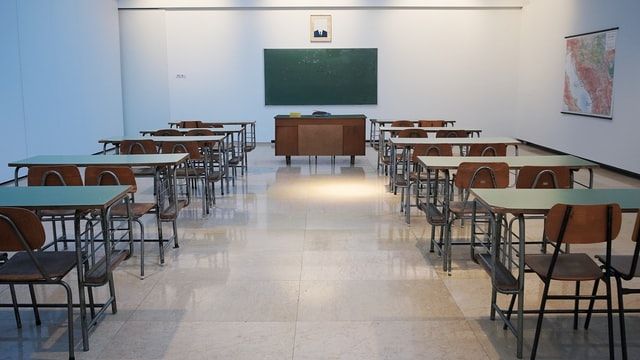
Are schools and colleges really good at doing their jobs?
When the very 1st corona induced lockdown started on 24th March, my brother’s matriculation exams had just ended. New session was supposed to start on April 1. But, due to consecutive lockdowns, Schools haven’t opened till date (June 9).
Talking about my college, I am yet to write my final semester exams which I would have already done in May in normal times. As I am still stuck with my college, and will be for next 2 months, I haven’t joined any insitute for competitive exam preparation (which I would have in normal times).
Institutionalization of Education
To keep the ‘stream of knowledge’ flowing, schools and colleges adapted online platforms. This adaptation nudged me to think about the education from a different point of view.
I have spent most of my life acquiring knowledge in an Institutionalized manner. My parents had put me into a ‘sort-of’ playway when I was around 2. Then at 3, I started the school and kept going there until I was almost 18. After school, I have spent next 3 years of my life in College.
Its not like I have just acquired bookish knowledge at those places, they have played a generous role in my personal development too. But, the question that recent lockdown posed was if those age old Institutes are really as important as people think.
There is one more thing that makes me question the importance that we attach with these instututes. I have been preparing for UPSC CSE from a while now. This exam basically covers the School Syllabus from 6th to 12th Standard.
When I started the preparation, I found it astonishing that I don’t remember even 10% of what I had learned so sincerely in those standards.
Too many Subjects
I don’t know the reason but I never liked the Humanities Subjects (Geography, History, Civics etc.) in the school. Me and my friends always used to question the logic behind teaching those subjects to us when we were sure of opting carrer in Science Stream in the future.
The arguement seemed really strong in those times. Many other people, while bitching about India’s ‘Bad’ Education System, also mention this point of teaching those extra subjects that lead to extra workload on kids.
One possible counter argument can be, that kids are kids, so, we should keep their options open until we can. But, Is that really necessary?
Learn and Forget
Until 10th, I was taught complete Ancient, Medieval and Modern History of India and Punjab. I literally hated that subject. After the final exam of 10th, I was very much relieved. I was really happy that I won’t need to remember those old dates ever again.
I like to call this, the ‘Learn and Foget’ method. You learn as much material of a subject as you can, then cram rest of the stuff, attempt the exam, score really good and forget everything. As students are judged by their marks, the ‘Learn and Forget’ method helps in keeping both the parents and teachers happy but gain of ‘real knowledge’ is almost nil.
I can guarantee that this method is used by almost all the students stuck in Institutional World of Education, just the results of this method vary. Some top the merit list and some are just not so good in this craming game.
Why still these Institutions are so much popular?
The very basic reason behind their popularity is the trust that these institutions have built over the years.
You are reading this article and I am writing it, We must have learnt this art of reading and writing somewhere. There is a very high probability that this learning would have came through the medium of an institution (i.e. school).
So, if you have a kid and you put him into a school, then after 5-6 years, he /she will almost certainly learn to read and write a few languages.
Moreover, in those years, your kid will get a basic idea of addition, substration, division and multiplication.
Side by side, along with the fundamental learning, schools are also very good at taking off burden from the parent’s shoulders of taking care of their kids during day time.
Commercialization of Education
Most (private) Educational Institutions don’t pay their teachers much. This results in a general diversion from the field of teaching as a career option in most people’s minds. Brightest kids are never recommended Teaching as a carrer option because of this low pay scale.
So usually, the people who can’t get into high-paying jobs (i.e. the ones who are not too bright at studies themselves) opt teaching as a mode of survival. The argument I am trying to put forward is that ‘if you have a below-average teacher who has no good motivation to teach then it won’t be an amazing learning experience.’
Sad thing is that, this cycle of low pay > below-average teachers > no-so amazing learning experience, is getting increasing common in the Institutional Education World.
Final Thoughts
My mother has a very high place of Schools and Colleges in her brain. In her times, education wasn’t as commercialised or institutionalised as it is right now.
Profit making tactics of schools and colleges have literally destroyed the spirit of learning and shifted the focus to ‘marks based learning’.
As i have already stated, schools are really good at providing primary and elemantary education, but they do an equally bad job afterwards.
I hope that as the alternative methods of learning (online platforms) are coming forward, it would be possible to improve the way our children recieve their education.




This Post Has 0 Comments